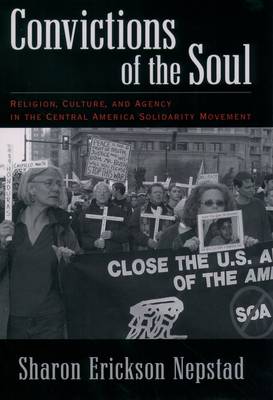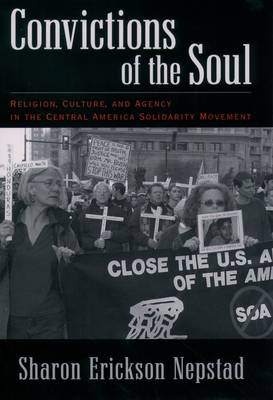
- Retrait gratuit dans votre magasin Club
- 7.000.000 titres dans notre catalogue
- Payer en toute sécurité
- Toujours un magasin près de chez vous
- Retrait gratuit dans votre magasin Club
- 7.000.0000 titres dans notre catalogue
- Payer en toute sécurité
- Toujours un magasin près de chez vous
Convictions of the Soul
Religion, Culture, and Agency in the Central America Solidarity Movement
Sharon Erickson Nepstad
Livre relié | Anglais
149,45 €
+ 298 points
Description
Many U.S. Christians were profoundly moved by the liberation struggles in Central America in the 1980s. Most learned about the situation from missionaries who had worked in the area and witnessed the repression firsthand. These missionaries, Sharon Erickson Nepstad shows, employed the institutional and cultural resources of Christianity to seize the attention of American congregations and remind them of the moral obligations of their faith. Drawing on archival data and in-depth interviews with activists in ten separate solidarity organizations around the country, Nepstad offers a rich analysis of the experiences of religious leaders and church members in the solidarity movement. She explores the moral meaning of protest and the ways in which clergy used religious rituals, martyr stories, and biblical teachings to establish a link between faith and activism. She looks at the factors that transformed missionaries into skilled leaders who were able to translate the Central American conflicts into Christian themes and a religious language familiar to U.S. congregations. She also offers insights into the unique challenges of organizing on the transnational level and shows how the solidarity movement made U.S. policy towards Central America one of the most hotly contested issues in American politics during the 1980s. Unpacking the implications of her study for the field of collective action, Nepstad stresses the importance of the individual human agents who shape, and are shaped by, the structures and cultures in which they operate. She argues that working in and through the church gave supporters of solidarity moral credibility as well as a rich source of symbolic, human, and material resources that enabled them to reach across national boarders, motivating others to act upon their deeply held moral convictions. Shedding new light on the genesis and evolution of this important activist movement, Convictions of the Soul will be of interest to students and scholars of social movements, religion, and politics.
Spécifications
Parties prenantes
- Auteur(s) :
- Editeur:
Contenu
- Nombre de pages :
- 224
- Langue:
- Anglais
Caractéristiques
- EAN:
- 9780195169232
- Date de parution :
- 22-07-04
- Format:
- Livre relié
- Format numérique:
- Genaaid
- Dimensions :
- 164 mm x 239 mm
- Poids :
- 498 g

Les avis
Nous publions uniquement les avis qui respectent les conditions requises. Consultez nos conditions pour les avis.






